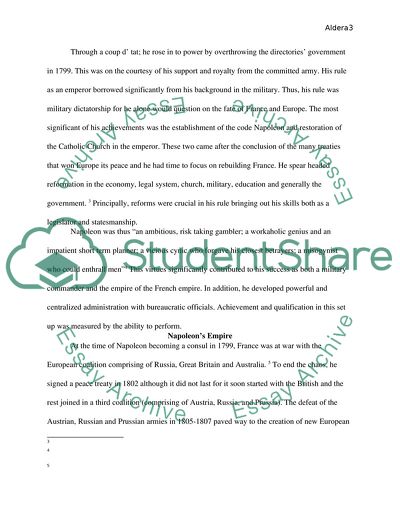Cite this document
(Napoleon's Empire Report Example | Topics and Well Written Essays - 1500 words - 1, n.d.)
Napoleon's Empire Report Example | Topics and Well Written Essays - 1500 words - 1. https://studentshare.org/history/1815261-napoleon
Napoleon's Empire Report Example | Topics and Well Written Essays - 1500 words - 1. https://studentshare.org/history/1815261-napoleon
(Napoleon'S Empire Report Example | Topics and Well Written Essays - 1500 Words - 1)
Napoleon'S Empire Report Example | Topics and Well Written Essays - 1500 Words - 1. https://studentshare.org/history/1815261-napoleon.
Napoleon'S Empire Report Example | Topics and Well Written Essays - 1500 Words - 1. https://studentshare.org/history/1815261-napoleon.
“Napoleon'S Empire Report Example | Topics and Well Written Essays - 1500 Words - 1”. https://studentshare.org/history/1815261-napoleon.


